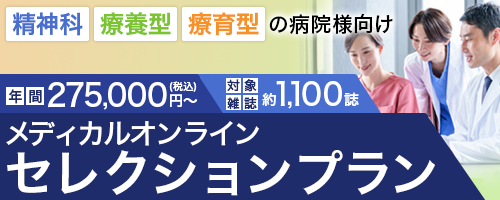アブストラクト
Japanese
| Title | 日本のCOVID-19禍における周産期うつの実態とその関連要因 |
|---|---|
| Subtitle | 原著 |
| Authors | 堀口範奈1),2), 中澤港2), 松島みどり3) |
| Authors (kana) | |
| Organization | 1)大阪大学大学院医学系研究科保健学専攻, 2)神戸大学大学院保健学研究科, 3)筑波大学人文社会系 |
| Journal | 日本看護科学会誌 |
| Volume | 42 |
| Number | |
| Page | 509-517 |
| Year/Month | 2022 / |
| Article | 原著 |
| Publisher | 日本看護科学学会 |
| Abstract | 「要旨」目的: 周産期うつの実態, 関連する要因について, COVID-19流行禍の社会的影響を踏まえ検討する. 方法: 2020年10月オンライン自記式質問紙調査を行い妊婦739名, 産後1年未満の母親1,603名から回答を得た. 結果: 周産期うつ高リスク者は, 妊娠期108名(14.6%), 産後1年未満351名(21.9%)であった. COVID-19禍の経験として, 『子供を公共の場に連れていくことに対する批判の経験』は18.1%, 『収入減少』は38.0%, 『COVID-19罹患への恐怖』は77.2%であった. ロジスティック回帰分析の結果, 周産期うつ高リスクと関連がみられた項目は, 精神疾患既往, 最終学歴, 母児の健康問題, COVID-19の社会的影響であり, 時期や分娩歴により異なった. 結論: COVID-19禍において妊婦や母親の周産期うつが増加しており, COVID-19の社会的影響を考慮したケアの必要性が示唆された. |
| Practice | 看護学 |
| Keywords | 新型コロナウイルス感染症, 周産期, メンタルヘルス, COVID-19, perinatal period, mental health |
English
| Title | Perinatal Depression and Related Factors under the COVID-19 Crisis in Japan |
|---|---|
| Subtitle | |
| Authors | Hanna Horiguchi1),2), Minato Nakazawa2), Midori Matsushima3) |
| Authors (kana) | |
| Organization | 1)Osaka University Graduate School of Medicine, Division of Heath Sciences, 2)Kobe University Graduate School of Health Sciences, 3)University of Tsukuba Faculty of Humanities and Social Sciences |
| Journal | Journal of Japan Academy of Nursing Science |
| Volume | 42 |
| Number | |
| Page | 509-517 |
| Year/Month | 2022 / |
| Article | Original article |
| Publisher | Japan Academy of Nursing Science |
| Abstract | [Abstract] Objective: This study aimed to investigate the actual situation of perinatal depression and related factors considering the social impact of COVID-19. Method: This was a cross-sectional study using an online self-administered questionnaire in October 2020, and responses were obtained from 739 pregnant women and 1,603 mothers less than a year postpartum. Results: Regarding the experience of crises related to the Coronavirus disease 2019 (COVID-19) pandemic, "experiencing criticism for taking the child to public places" was found to be 18.1%, "reduced income" was 38.0%, and "fear of COVID-19 illness" was 77.2%. The logistic regression analysis showed that factors associated with the high risk of perinatal depression were 'history of mental disorders', 'academic background', 'maternal and infant health condition' and 'social impact of COVID-19, varied depending on timing and delivery history. Conclusion: Depression among pregnant women and mothers increased in the COVID-19 pandemic, and it suggested the need for care considering the social impact of COVID-19. |
| Practice | Nursing |
| Keywords | COVID-19, perinatal period, mental health |
- 全文ダウンロード: 従量制、基本料金制の方共に770円(税込) です。
参考文献
- Cox, J. L., Holden, J. M., Sagovsky, R. (1987): Detection of postnatal depression-Development of the 10-item Edinburgh postnatal depression scale, Br. J. Psychiatry, 150, 782-786.
- Dennis, C. L., Chung-Lee, L. (2006): Postpartum depression help-seeking barriers and maternal treatment preferences: A qualitative systematic review, Birth, 33(4), 323-331.
- Dunford, E., Granger, C. (2017): Maternal guilt and shame: Relationship to postnatal depression and attitudes towards help-seeking, J. Child Fam. Stud., 26(6), 1692-1701.
- Etzioni, A. (2021): Community and COVID-19: Japan, Sweden and Uruguay, Survival, 63(1), 53-76.
- Gilbert, P. (2006): Evolution and depression: Issues and implications, Psychol. Med., 36(3), 287-297.
残りの22件を表示する
- Hadfield, H., Wittkowski, A. (2017): Women's experiences of seeking and receiving psychological and psychosocial interventions for postpartum depression: A systematic review and thematic synthesis of the qualitative literature, J. Midwifery Womens Health, 62(6), 723-736.
- 公益社団法人 日本産婦人科医会(2017) : 妊産婦メンタルヘルスケアマニュアル〜産後ケアへの切れ目ない支援に向けて〜, Retrieved from: http://www.jaog.or.jp/wp/wp-content/uploads/2017/11/jaogmental_L.pdf.
- 厚生労働省(2020a) : 産前・産後サポート事業ガイドライン産後ケア事業ガイドライン, Retrieved from: https://www.jschild.or.jp/wp-content/uploads/2020/08/%E3%80%90%E5%88%A5%E6%B7%BB%EF%BC%92%E3%80%91%E7%94%A3%E5%89%8D%E3%83%BB%E7%94%A3%E5%BE%8C%E3%82%B5%E3%83%9D%E3%83%BC%E3%83%88%E4%BA%8B%E6%A5%AD%E3%80%80%E7%94%A3%E5%BE%8C%E3%82%B1%E3%82%A2%E4%BA%8B%E6%A5%AD%E3%82%AC%E3%82%A4%E3%83%89%E3%83%A9%E3%82%A4%E3%83%B3.pdf.
- 厚生労働省(2020b) : 産後ケア事業の利用者の実態に関する調査研究事業報告, Retrieved from: https://www.mhlw.go.jp/content/000694012.pdf.
- Kokubu, M., Okano, T., Sugiyama, T. (2012): Postnatal depression, maternal bonding failure, and negative attitudes towards pregnancy: A longitudinal study of pregnant women in Japan, Arch. Womens Ment. Health, 15(3), 211-216.
- Lancaster, C. A., Gold, K. J., Flynn, H. A., et al. (2010): Risk factors for depressive symptoms during pregnancy: A systematic review, Am. J. Obstet. Gynecol., 202(1), 5-14.
- 前川由未子, 金井篤子(2016) : メンタルヘルス専門家への援助要請に関する研究の動向 : 援助要請態度, 意図, 行動の観点から, 名古屋大学大学院教育発達科学研究科紀要, 63, 57-72.
- Matsushima, M., Horiguchi, H. (2020): The COVID-19 pandemic and mental well-being of pregnant women in Japan: Need for economic and social policy interventions, Disaster Med. Public Health Prep., 1-6.
- 向井勇貴, 瀬尾晃平, 奥山亜由美, 他(2021) : COVID-19パンデミックによる周産期医療への影響に関する検討, 日本周産期・新生児医学会雑誌, 57(1), 108-113.
- Nakamura, Y., Okada, T., Morikawa, M., et al. (2020): Perinatal depression and anxiety of primipara is higher than that of multipara in Japanese women, Sci. Rep., 10(1), 17060.
- National Institute of Mental Health(NIMH): Perinatal Depression, Retrieved from: https://www.nimh.nih.gov/health/publications/perinatal-depression.
- Oates, M. (1989): Normal emotional changes in pregnancy and the puerperium, Baillieres Clin. Obstet. Gynaecol., 3(4), 791-804.
- Obata, S., Miyagi, E., Haruyama, Y., et al. (2021): Psychological stress among pregnant and puerperal women in Japan during the coronavirus disease 2019 pandemic, J. Obstet. Gynaecol. Res., 47(9), 2990-3000.
- 岡野禎治(1996) : 日本版エジンバラ産後うつ病自己評価表(EPDS)の信頼性と妥当性, 精神科診断学, 7(4), 525-533.
- 小田巻郁哉, 石川勝彦, 遠藤清香, 他(2020) : Statistical analysis of reasons of avoiding using parenting support center: Text mining of free description, 大学改革と生涯学習 : 山梨学院生涯学習センター紀要, 24, 49-62.
- R Core Team (2021): R: A language and environment for statistical computing, Retrieved from: https://www.R-project.org/.
- Ridley, M., Rao, G., Schilbach, F., et al. (2020): Poverty, depression, and anxiety: Causal evidence and mechanisms, Science, 370(6522). doi: https://doi.org/10.1126/science.aay0214.
- 重村淳, 高橋晶, 大江美佐里, 他(2020) : COVID-19(新型コロナウイルス感染症)が及ぼす心理社会的影響の理解に向けて, トラウマティック・ストレス, 18(1), 1-9.
- Tokumitsu, K., Sugawara, N., Maruo, K., et al. (2020): Prevalence of perinatal depression among Japanese men: A meta-analysis, Ann. Gen. Psychiatry, 19(1), 41.
- Usuda, K., Nishi, D., Okazaki, E., et al. (2017): Optimal cut-off score of the Edinburgh postnatal depression scale for major depressive episode during pregnancy in Japan, Psychiatry Clin. Neurosci., 71(12), 836-842.
- Viveiros, C. J., Darling, E. K. (2019): Perceptions of barriers to accessing perinatal mental health care in midwifery: A scoping review, Midwifery, 70, 106-118.
- Vogel, D. L., Wade, N. G., Wester, S. R., et al. (2007): Seeking help from a mental health professional: The influence of one's social network, J. Clin. Psychol., 63(3), 233-245.



